Open-source tool for secret management and data protection across distributed infrastructure.
| Official website: | https://www.vaultproject.io/ |
|---|---|
| Home Lab: | https://vault.logu.au/ |

Introduction:
In the realm of data security and secrets management, HashiCorp Vault emerges as a robust and dynamic solution, empowering organizations to safeguard sensitive information and manage access to critical resources. As a comprehensive and scalable secrets management platform, Vault plays a pivotal role in securing the modern IT landscape. Let’s explore the world of HashiCorp Vault and delve into its features that make it a linchpin in the realm of data protection.
Understanding HashiCorp Vault:
HashiCorp Vault is an open-source secrets management tool designed to secure, store, and control access to sensitive information, such as passwords, API keys, and encryption keys. Vault provides a centralized platform for managing and distributing secrets across applications, infrastructure, and various cloud environments, ensuring a robust security posture.
Key Features:
-
Dynamic Secrets: Vault introduces the concept of dynamic secrets, allowing it to generate short-lived credentials on-demand for various systems, databases, and cloud services. This approach enhances security by minimizing the exposure of sensitive information and reducing the risk of long-term compromise.
-
Secrets Encryption and Rotation: Vault provides strong encryption for stored secrets and supports automated rotation, ensuring that credentials are regularly updated to minimize the risk of unauthorized access. This proactive approach to security aligns with best practices for secrets management.
-
Access Control Policies: Vault allows administrators to define granular access control policies, specifying who can access which secrets and under what conditions. This fine-grained control ensures that only authorized users and applications have access to sensitive information.
-
Multi-Cloud Support: Vault is cloud-agnostic, supporting multiple cloud providers and on-premises environments. This flexibility enables organizations to maintain a consistent secrets management strategy across diverse infrastructure landscapes.
Use Cases:
-
Application Secrets Management: Vault is widely used for managing secrets required by applications, ensuring that sensitive information, such as database credentials or API keys, is securely stored and accessed only by authorized entities.
-
Infrastructure as Code (IaC): In DevOps environments, Vault seamlessly integrates with Infrastructure as Code (IaC) tools, providing a secure way to manage and distribute secrets needed for provisioning and managing infrastructure resources.
-
Certificate Authority: Vault can function as a Certificate Authority (CA), generating and managing X.509 certificates for secure communication between systems. This is especially valuable in securing microservices architectures.
Conclusion:
HashiCorp Vault stands as a critical component in the arsenal of tools dedicated to fortifying data security and secrets management. Its dynamic secrets, encryption capabilities, access control policies, and support for multi-cloud environments make it an invaluable asset for organizations navigating the complex landscape of modern IT security. In an era where data breaches and cyber threats loom large, HashiCorp Vault stands as a guardian, ensuring that sensitive information remains protected and accessible only to those with the proper authorization.

